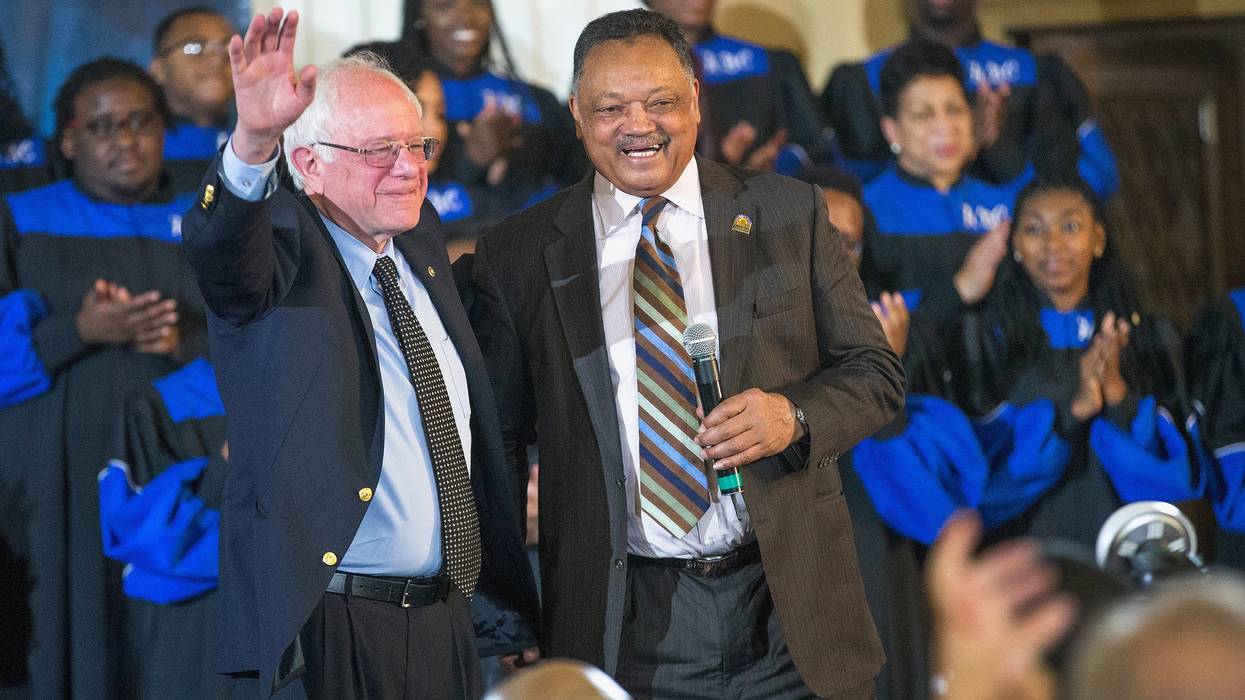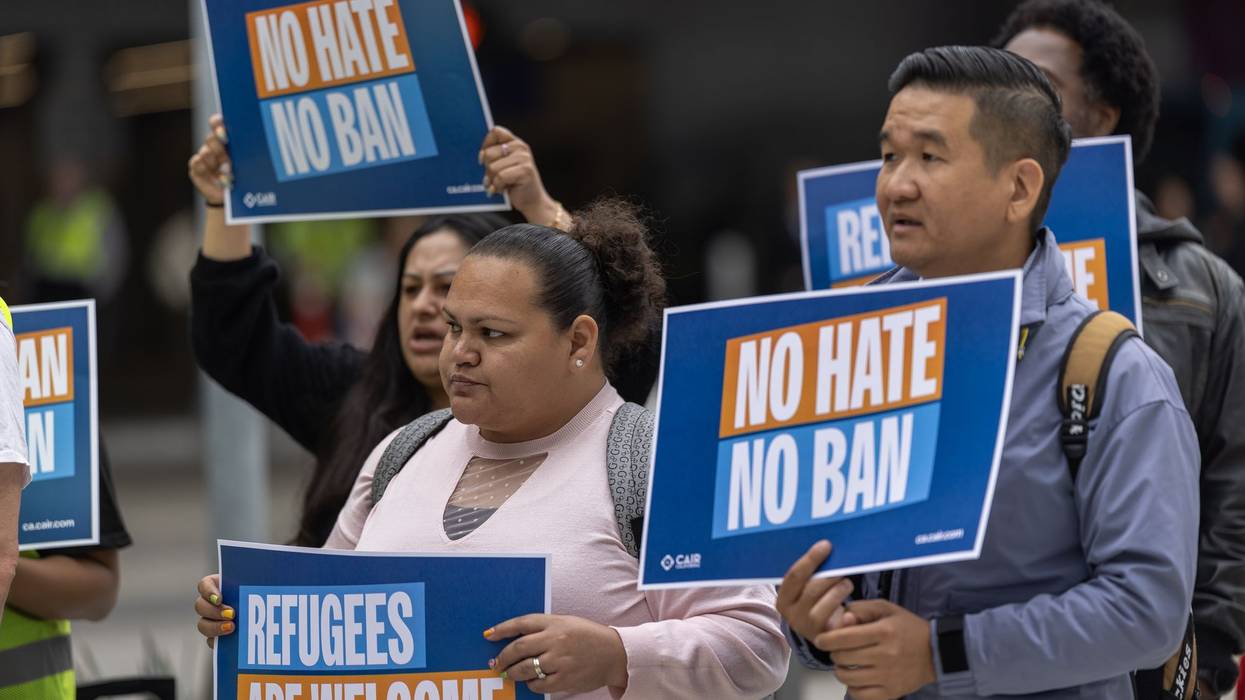Michiganders Vow to Fight Trump Attacks on LGBTQ+ Youth as DOJ Probes Public Schools
"We urge federal officials to focus on real threats to student well-being like gun violence, funding cuts, and staffing shortages rather than singling out districts that work to support all children," said one advocacy leader.
Denouncing the Trump administration's probes to determine whether three public school districts "have included sexual orientation and gender ideology" content in courses as "part of a broader attack on our rights as Michiganders," the head of one progressive group pledged Friday to keep fighting to ensure that "all of our kids can thrive at school free from bullying, harassment, and other unfair treatment."
The US Department of Justice announced Wednesday that its Civil Rights Division is investigating Detroit Public Schools Community District, Godfrey-Lee Public Schools, and the Lansing School District. The DOJ is examining content for pre-K through 12th grade courses, opt-out policies, and whether the districts "limit access to single-sex intimate spaces, such as bathrooms and locker rooms, based on biological sex."
In a Friday statement, Justin Mendoza, executive director of Progress Michigan, emphasized that his state's "civil rights laws explicitly protect LGBTQ+ students, and our state must enforce them to the fullest extent."
Mendoza condemned not only the Trump administration's efforts to harm "the most vulnerable and historically marginalized among us," but also Republicans at the state and federal level who "are trying to limit honest conversations about our nation's history, while fighting each and every attempt to create safe, inclusive schools for our children."
"Attorney General Pam Bondi is setting a terrible example for younger generations—considering the way she behaved at a recent congressional hearing where she name-called members of Congress—and now she's going a step further by throwing nondiscrimination policies into the dumpster," he said. "People of all genders, races, and backgrounds benefit from strong nondiscrimination policies."
"From Marquette to Monroe, teachers, students, and their families are committed to having an educational system that reflects the diversity of the world they live in," Mendoza continued. "Classrooms deserve to have age-appropriate conversations about health, identity, and respect, and if parents choose to opt their children out of participating in these conversations, they are already allowed to by Michigan law."
"The Trump Department of Justice is truly looking to invent problems instead of actually fighting crime and violence towards youth," he concluded, "and Michiganders won't take this intrusion into our education system."
"The Trump Department of Justice is truly looking to invent problems instead of actually fighting crime and violence towards youth, and Michiganders won't take this intrusion into our education system."
Other state and nationwide groups have also spoken out against the administration's probes and targeting of LGBTQ+ youth this week. Brian Dittmeier, director of LGBTQI+ equality at the National Women's Law Center, blasted the investigations as a "blatant attempt to discourage inclusive education."
Jay Kaplan, a staff attorney for the ACLU of Michigan, told Chalkbeat that "this is an attempt to harass and bully districts into discriminating against trans kids and into erasing the existence of LGBTQ people."
Equality Michigan executive director Erin Knott said that "LGBTQ+ youth are among the most vulnerable young people in our state. They face higher rates of bullying, harassment, and mental health challenges. Inclusive education policies are not 'ideology,' they are evidence-based efforts to ensure that every student feels safe, respected, and seen in their own school community."
"All kids deserve an education that reflects the diversity of the world they live in," she stressed. "Age-appropriate discussions about health, identity, and respect help create safer classrooms for all students. We urge federal officials to focus on real threats to student well-being like gun violence, funding cuts, and staffing shortages rather than singling out districts that work to support all children."
State Superintendent Glenn Maleyko was similarly critical of the federal administration in his response, saying Thursday that "the Michigan Department of Education strongly supports all students and supports the school districts that have been targeted by the US Department of Justice."
Maleyko continued:
If we want to put Students First and make sure children can learn, we need all students to be healthy and safe and feel included. The much-needed updates to health education guidelines—which the Department of Justice falsely said are state requirements—help local districts make decisions on how they can support student health.
As required by state law, MCL 380.1507, local school boards set health curriculum with input from local sex education advisory boards. Local control remains in place. Parents retain the right to decide whether their children should participate in sex education instruction.
The Michigan Department of Education strongly supports and will work closely with the three districts' efforts to select a curriculum that best supports the needs of their students, consistent with state standards and guidelines. We remain committed to protecting the rights of all students and to upholding Michigan’s constitutional guarantee of access to a free public education for every child.
"The breadth and scope of the federal requests, premised on a mischaracterization of the Michigan Health Education Standards Guidelines adopted by the State Board of Education, place a significant administrative burden on local districts and risk diverting time and resources away from the core mission of educating students," Maleyko added.
As for the targeted districts, a spokesperson for the Detroit schools declined to comment, while Guillermo Lopez, the Lansing school board president, told the Detroit Free Press that parents in his district are informed that "they can opt out of certain classes."
Arnetta Thompson, superintendent of Godfrey-Lee schools, told Chalkbeat that her district will provide information requested by the DOJ and "is not facing any charges or findings of wrongdoing. We remain committed to complying with all applicable federal, state, and local laws and have consistently operated in accordance with those laws."


